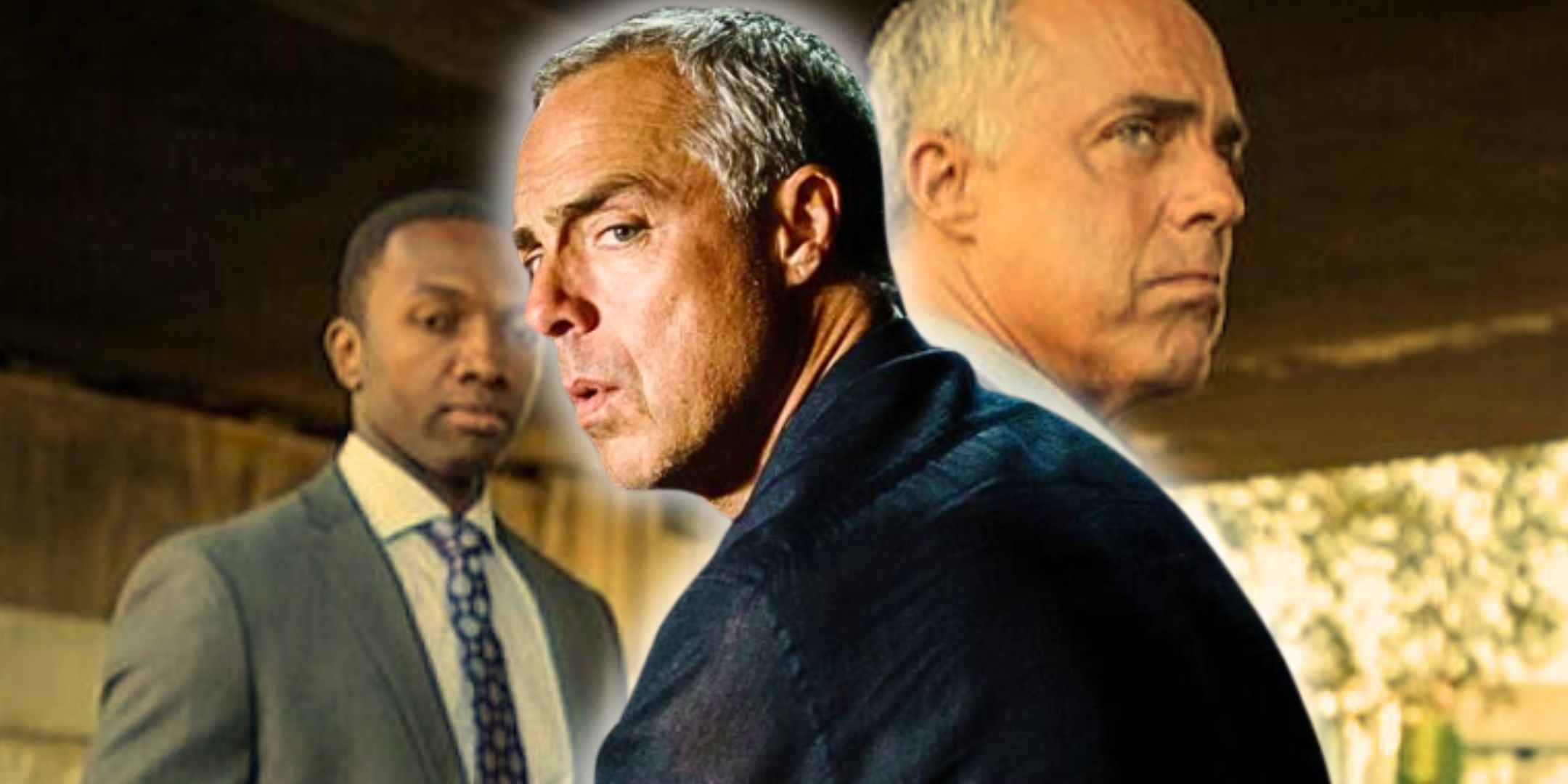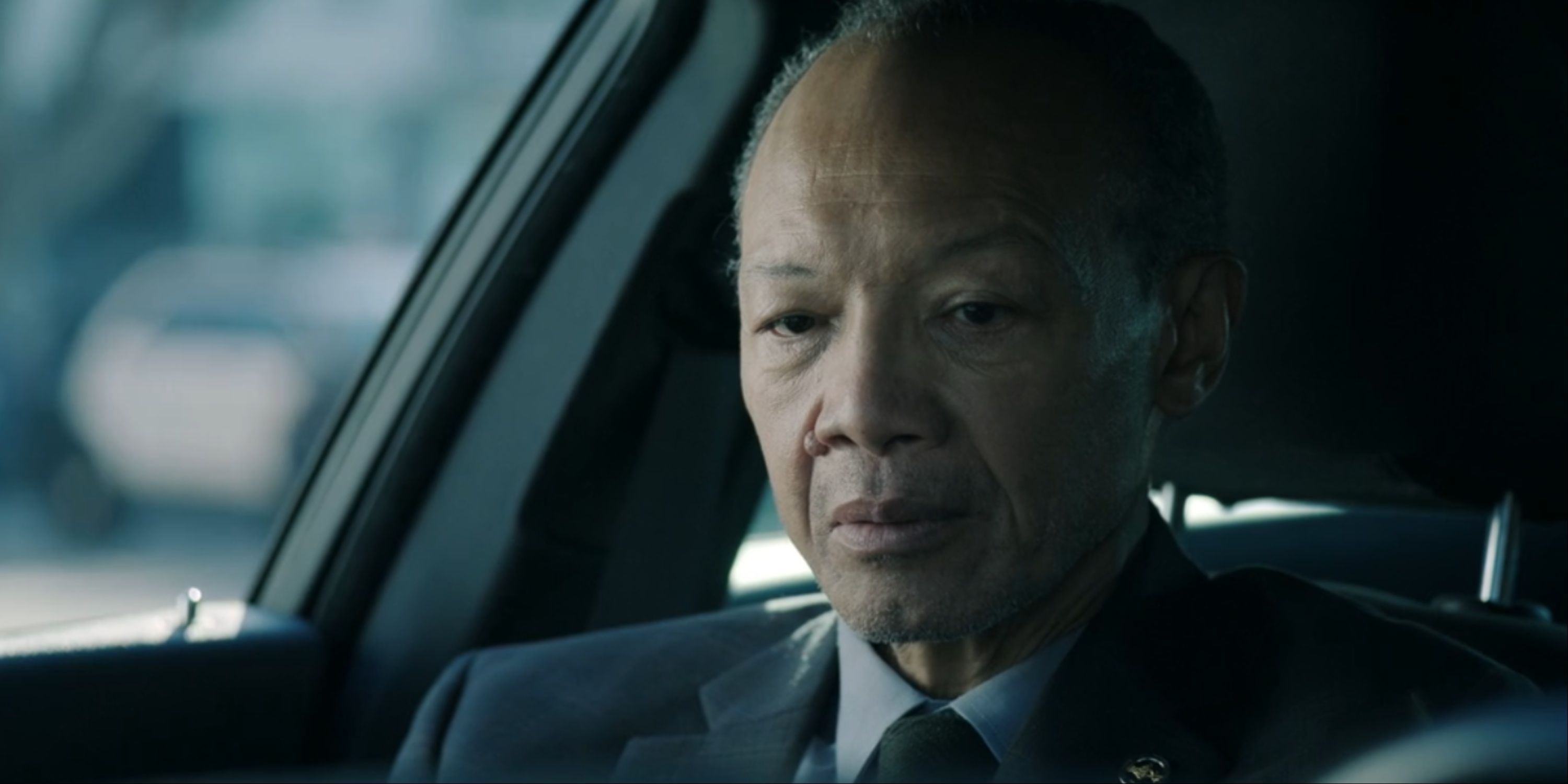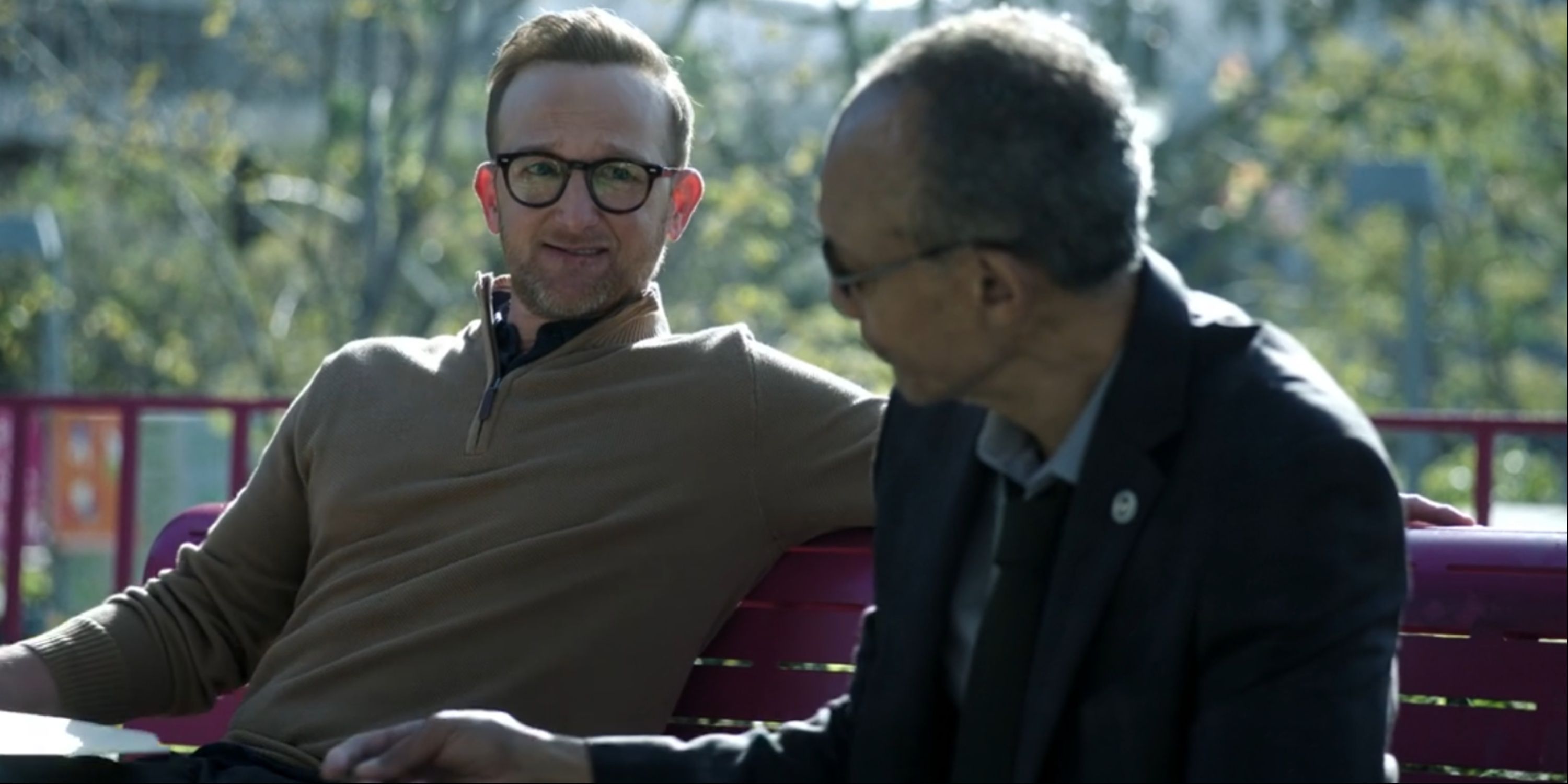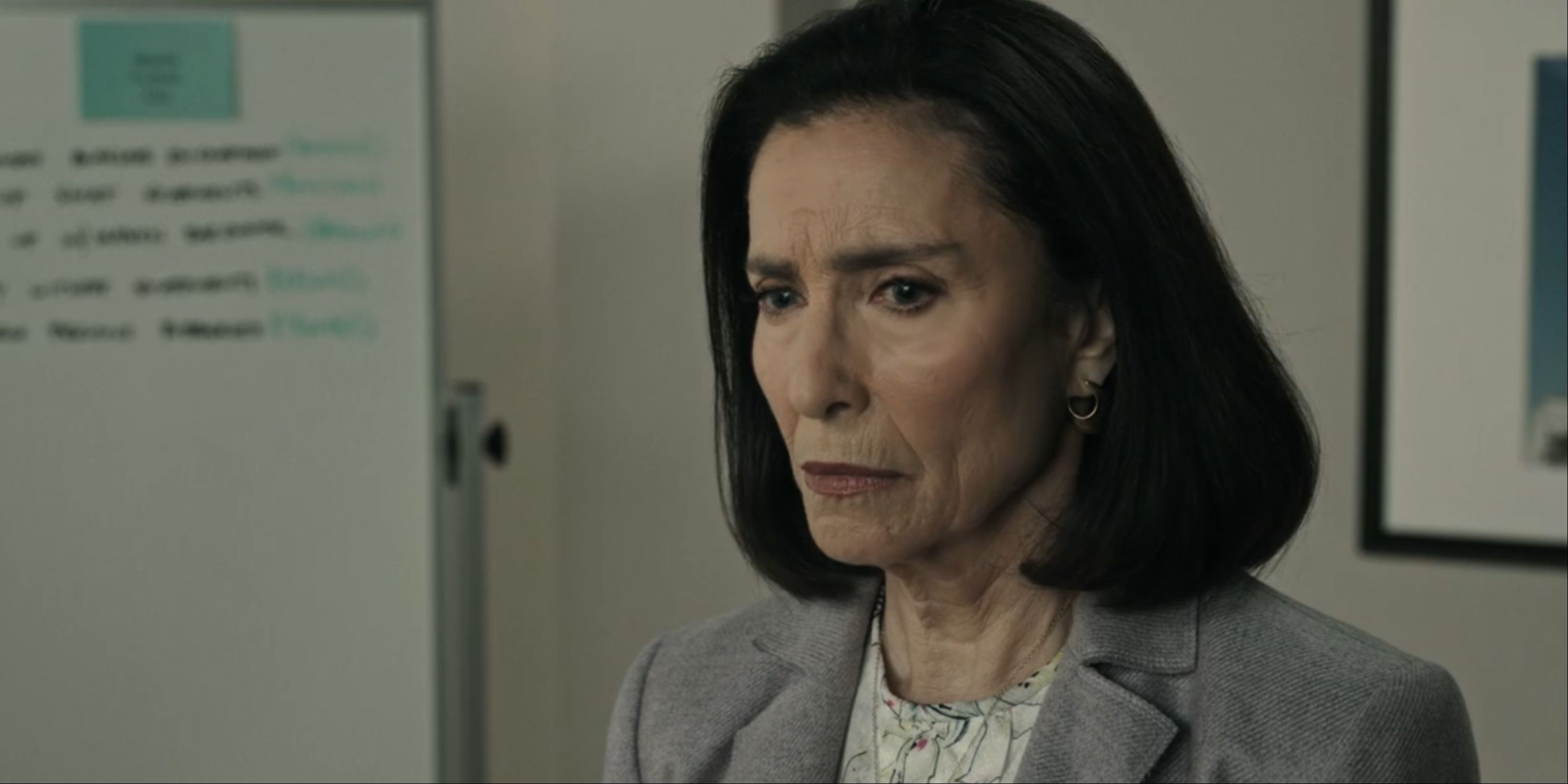
The shows “Bosch” and “Bosch: Legacy,” both crime dramas available on Prime Video, are adaptations of Michael Connelly’s “Bosch” book series. The main character, Detective Hieronymus “Harry” Bosch, featured in the LAPD’s homicide division in Season 1 of “Bosch,” investigates various crimes and mysteries throughout each season while dealing with personal matters from his past that resurface. In the spin-off series “Bosch: Legacy,” Harry leaves the LAPD to become a private investigator, a development also seen in Connelly’s novels.
Although both “Bosch” and “Bosch: Legacy” are inspired by Michael Connelly’s work from the Bosch series, they do not strictly adhere to the original stories. Instead, these shows incorporate elements from various books in the series to form a cohesive narrative for the show. Characters like Jerry Edgar and Chief Irving reappear, while others, such as Honey Chandler, have expanded roles, and some characters, like Jimmy Robertson, are entirely new creations for the series. Despite altering the source material significantly, which some book fans may find frustrating, these changes are a key reason why “Bosch” and “Bosch: Legacy” have been successful.
The Bosch TV Universe Became Its Own Thing
Storylines and Characters Changed in the TV Series
When supporters learn that their beloved book is set to be made into a movie, many anticipate a nearly frame-by-frame reproduction on the big screen. Yet, this rarely happens, leaving numerous fans disheartened. Adaptations such as the Harry Potter films remain a subject of debate as film enthusiasts seek details missed from the books, or book lovers lament omitted plotlines or characters. However, in the case of Bosch, this was actually beneficial.
Unlike the Harry Potter series and other books that tell one continuous narrative, the Bosch book series doesn’t adhere to a single chronological storyline. Each book focuses on the same protagonist, Harry Bosch, as he tackles distinct cases and interacts with various characters. This structure allows readers to pick up any Bosch book without worrying about reading them in order, as they can still comprehend the plot, although they might miss some recurring themes or references. Nonetheless, they can still fully appreciate each book’s story.
The Bosch book series shares some resemblance with a series where multiple books revolve around the same detective and recurring characters, yet each book can be read individually. However, translating this self-contained narrative style into an adaptation doesn’t seem to work effectively. Unlike their literary counterparts, Bosch and Bosch: Legacy are set in a TV series-specific universe, featuring the same characters and book plots, but resulting in a distinctly different experience altogether.
The show benefits from standing on its own, as it captivates viewers who haven’t read the books with its intriguing universe. Key plotlines and character endings were tailored to fit the series’ overall story arc. Such alterations often spark criticism among book fans when a book is adapted into a movie or TV show. However, these changes are what have made Bosch and Bosch: Legacy so popular and garnered them such a dedicated fanbase.
Original Characters Became Major to the TV Series
Other Characters Were More Developed and Important in the Show




In the Bosch book series, readers can pick up any volume and find both the narrative engaging and the characters captivating. However, once a story concludes and major conflicts are resolved within the confines of each book, readers may move on to other topics. Conversely, in the Bosch TV universe, the characters and their stories seem more authentic and developed, allowing viewers to empathize with them and their experiences.
In both the original Bosch series and Bosch: Legacy, unique characters were introduced, such as Detective Jimmy Robertson from the original Bosch and Mo Bassi in Bosch: Legacy. These characters soon became beloved by fans and played significant roles in the television world of Bosch. On the contrary, characters like Jerry Edgar and Honey Chandler underwent more character development and had more storylines in the TV adaptation.
Michael Connelly’s novels feature distinct characters in each story, similar to a television series, but unlike the show, these characters are confined to their respective books and do not appear in subsequent stories unless explicitly mentioned. For example, Jerry Edgar, who frequently collaborates with Harry, has limited growth beyond being Harry’s coworker, and their relationship is more strained in the novels compared to the TV version. In the books, it’s portrayed that Harry feels that J. Edgar lacks a true dedication to detective work, which creates tension between them.
In “The Concrete Blonde,” Honey Chandler made her debut and was only present in that particular book by Michael Connelly. However, when the series adaptation took shape, Chandler became a crucial figure, eventually becoming one of the primary characters in both the original show “Bosch” and its successor, “Bosch: Legacy.” While the books primarily focus on Harry Bosch’s mission, work, and inner turmoil, they don’t delve deeply into the other characters as the TV series does. This is why the “Bosch” and “Bosch: Legacy” storylines feel like a unified world populated by authentic individuals with their own histories, hardships, and motivations.
Combining Books in One Single Season Kept Fans of the Books Guessing
Fans Who Knew the Book Story Still Found New Things
In contrast to a planned Harry Potter reboot where each season follows a single book, Bosch and Bosch: Legacy creatively blend various books as inspiration for their narratives, adapting only parts that align with the series’ overall storyline. This approach, which might be off-putting in other adaptations, contributes to the captivating nature of the Bosch TV universe.
Drawing on various literary sources, the television adaptation crafted its unique, standalone storyline distinct from the original books. Even those well-versed in the Bosch book series were left astonished and captivated by the show’s developments. The TV series significantly reworked many of the key mysteries and plot twists, alterations that proved sensible within the context of the series, as they served to intertwine the narratives seamlessly.
In Michael Connelly’s books, the cases that Harry deals with typically don’t have any lasting impact beyond their respective novels. However, in the television series, these cases can sometimes resurface and have an effect on future seasons, such as Frank Sheehan’s return in Bosch: Legacy Season 3, after being introduced in Bosch Season 4 years earlier. The results of Harry’s investigations and cases seem more tangible within the TV world because they continue to impact both Harry and those around him over time.
The Adaptation Still Kept One Key Element Intact
Harry Bosch Is the Same in the Books and on Screen
Bosch and Bosch: Legacy managed to preserve most elements of the original character, Harry Bosch, from the book series. This character remains largely consistent in both the literary and TV worlds, which was beneficial for the show as many readers admired Harry due to his character development. Although he may not encounter the exact cases or threats as depicted in the books, the television version of Harry Bosch retains his dedication to his job, pursuit of justice for victims, and commitment to doing what’s right, even when it’s challenging.
For Harry, being a police officer is more than just a job; it’s a purpose, a vocation. He treats his duties with utmost importance and often repeats, “everyone matters or no one matters,” a principle he adheres to in both the TV and book series. Harry operates by his own principles, struggles with bureaucracy and authority, but fundamentally, he aims to ensure criminals face justice.
The TV series adaptation of Harry Bosch effectively portrayed his inner struggles and motivations, which are crucial aspects of the character, rather than focusing on specific criminals or characters from the books. Titus Welliver’s portrayal of Harry resonated with book readers, making it hard for fans to let go after Bosch: Legacy concluded its third season. For now, fans can immerse themselves in Michael Connelly’s book series to experience new challenges and adventures faced by Harry Bosch, even though the cases may seem familiar, they could still surprise devoted viewers.
Read More
- PI PREDICTION. PI cryptocurrency
- Gold Rate Forecast
- WCT PREDICTION. WCT cryptocurrency
- LPT PREDICTION. LPT cryptocurrency
- Guide: 18 PS5, PS4 Games You Should Buy in PS Store’s Extended Play Sale
- Solo Leveling Arise Tawata Kanae Guide
- Despite Bitcoin’s $64K surprise, some major concerns persist
- SOL PREDICTION. SOL cryptocurrency
- Jack Dorsey’s Block to use 10% of Bitcoin profit to buy BTC every month
- Shrek Fans Have Mixed Feelings About New Shrek 5 Character Designs (And There’s A Good Reason)
2025-05-14 06:42